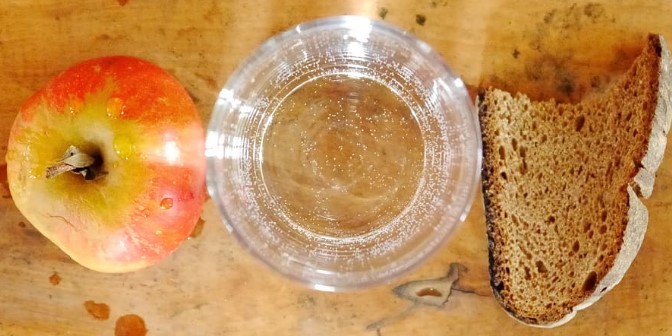Fasting as the Master Remedy
For a specific reason, a person may fast for a short or long period of time. This word derives from the old English word “feastan”, which means to fast, observe, or be strict. Fasting is nature’s most efficient, effective, and least expensive method of treating disease. Fasting is a natural healing process that is considered the cornerstone of your health.
Nature’s only universal and omnipotent remedy for healing and fundamental law of all healing and curing,” according to Arnold Eheret, the originator of the muscusless diet healing system.
The practice of fasting dates back thousands of years. It is practiced by almost all religions. Many religions observe strict fasting periods, including Muslims, Buddhists, Hindus, and others. This method was highly regarded by medieval saints. During the time of Asclepiades, more than two thousand years ago, fasting was advocated as a cure for the disease. The method has been considered one of the most reliable treatment methods throughout medical history. Muslims take a fast of 30 days every year.
The great authorities in medicine such as Hippocrates, Galen, Paracelsus, and others prescribed fasting healing. A number of diseases have been successfully treated using this system of healing by many prominent modern physicians.
Almost all diseases are caused by the accumulation of toxins and wastes in the body caused by overeating. People eat too much and follow sedentary occupations that do not allow sufficient and proper exercise to make good use of this large amount of food. This excess overburden the digestive and assimilating systems and clogs them up with impurities or poisons.
There is a slowdown in digestion and elimination, and the whole system becomes dysfunctional. As these impurities are removed from the system, the disease begins to manifest. Fasting or reducing food consumption is the only remedy for every disease, which is the opposite of what causes it.
When the body is deprived of food for a period of time, its elimination organs, such as the bowels, kidneys, skin, and lungs, are allowed to expel the accumulated wastes unhindered. Fasting is nothing more than a process of purification and a quick and effective method of healing.
Natural elimination of foreign matter and disease-producing waste from the body is assisted by it, thereby correcting the problems caused by poor diets and unhealthful lifestyles. The body’s tissues are also repaired and regenerated as a result of the regeneration of blood.

Duration of Fasting
Depending on the patient’s age, the disease’s nature, and the amount and type of drugs previously taken, the fast will last a certain period of time. Fasting for long periods of time may be dangerous if not undertaken under the guidance of professionals. Therefore, a series of short fasts of two to three days should be undertaken and each succeeding fast should be gradually extended by one day or more. Total fasting should not exceed one month at a time, however.
The chronically ill body will be able to eliminate toxic waste material gradually and slowly without seriously affecting its natural functioning. An individual can regain vigor and vitality after a fast by adopting a healthy lifestyle and following a balanced diet. In cases of serious kidney and liver diseases, as well as stomach and intestinal disorders, fasting is highly beneficial. For many cases of eczema and other skin diseases, it offers the only hope for permanent relief.
There are also a number of nervous disorders that respond well to this method of treatment. There are, however, some illnesses for which fasting should not be resumed. Patients with diabetes, tuberculosis at advanced stages, or severe neurasthenia should not fast for long periods of time. In fasting patients take rest and receive proper care, no harm will be done to them.
Methods of Fasting
There is no better, safer, and more effective method of fasting than juice fasting. Most of the leading authorities on fasting today agree that juice fasting is far superior to a water fast despite the old classic form of fasting being a pure water fast. Dr. Rangar Berg, the world-renowned nutrition authority, states that fasting expels huge quantities of waste from the body.
If we drink alkaline juice rather than water while fasting, we can help this cleansing process. You will be able to eliminate uric acid and other inorganic acids more quickly. The sugar in juices will also strengthen the heart. Juice fasting is therefore the most beneficial form of fasting. Fruit and vegetable juices contain vitamins, minerals, enzymes, and trace elements that can help normalize every process in the body.
Providing essential elements for the body’s healing activity and cell regeneration, they speed up the recovery process. Fresh fruit juices should be prepared immediately before drinking. Juices from cans or frozen should not be used.
To avoid suffering from gas or decomposing matter formed from excrements left in the body during a fast, the bowels should be completely empty before beginning the fast by enema. If you are on a fasting period, you should administer enemas every alternate day. Drink lukewarm water when thirsty and get fresh air when possible. Water can be added to fresh juices to dilute them. Approximately six to eight glasses of liquid should be consumed daily.
The process of eliminating toxic waste materials and accumulated poisons, the fast consumes a considerable amount of energy. Therefore, it is very important for the patients to rest and relax mentally and physically during the fast. When fruit juices are consumed on fast days, especially grapes, oranges, or grapefruit, toxic wastes enter the bloodstream rapidly, causing an overload of toxic matter, which affects normal body functions.
In many cases, dizziness and diarrhoea are the first symptoms followed by vomiting and diarrhoea. The fast should be discontinued if this physical reaction persists and cooked vegetables containing adequate roughage such as spinach and beets should be consumed until the body functions normally.
It is much easier for an overweight person to go without food. Fasting becomes almost enjoyable when a patient loses weight without fear. One of the hardest parts of the first day is dealing with the hunger pangs. Throughout the fast, however, the urge for food will gradually diminish.
When you’re seriously ill, you don’t want food, and fasting is a natural response. Stop eating when one feels complete well or until one’s appetite returns. During the fast, you may only perform very simple exercises like short walks. It is recommended that you take a warm water or neutral bath during this time.
It is not recommended to take cold baths. Daily sun and air baths are recommended. When fasting causes sleeplessness, you can overcome it by taking a warm tub bath, placing hot water bottles at your feet, and drinking a couple of glasses of hot water.
Benefits of Fasting
Several benefits can be derived from fasting. When the body goes on a long fast, it relies on its reserves for energy. As a result of the lack of nutrition, particularly protein, and fats, the body burns and digests its own tissues. This is known as autolysis. It won’t do so indiscriminately, however.
In order to decompose and burn diseased, damaged, aged, or dead cells and tissues, the body must first decompose and burn those cells and tissues. During fasting, essential tissues and vital organs, glands, the nervous system, and the brain are not damaged or digested. The secret to fasting’s effectiveness as a rejuvenating and curative method lies here.
The amino acids released from diseased cells help speed up the building of new, healthy cells during fasting. By relieving the eliminative organs of the usual burden of digesting food and removing the associated wastes, the capacity of the lungs, liver, kidneys, and skin increases greatly. As a result, they are capable of expelling old accumulated wastes and toxins quickly.
Physiological rest is provided to the digestive, assimilation, and protective organs during fasting. As a result, digestion and nutrient utilization are greatly improved after fasting. Additionally, fasting normalizes, stabilizes, and rejuvenates the nervous, mental, and physiological systems.







